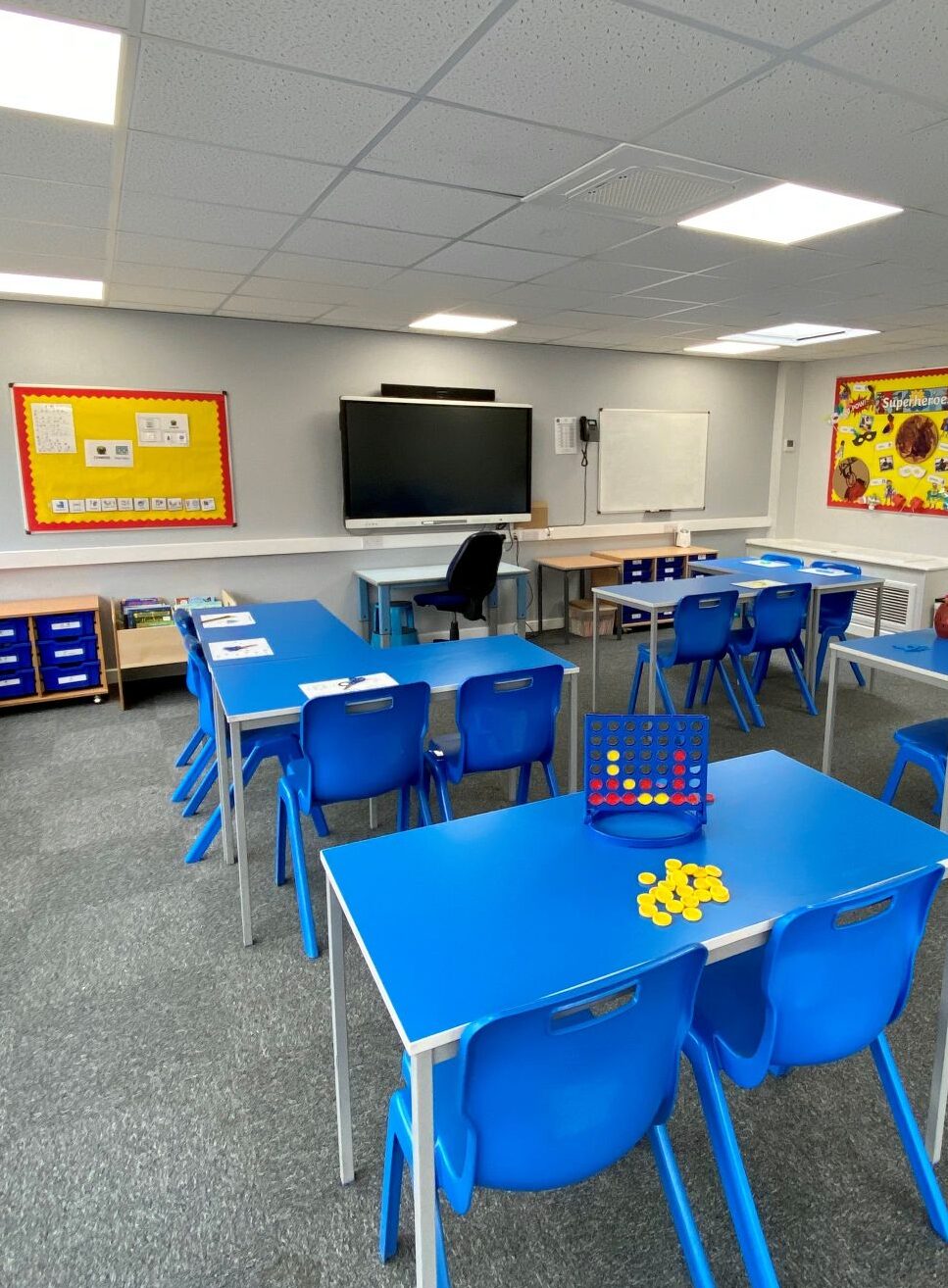KEY
GOOD HEALTH
FRIENDS, RELATIONSHIPS & COMMUNITY
Content marked ** in Italic is Sex Education Content
B0 – B7
Encountered
B8 – B14
Engaged
B15 – B21
Developing
B22+
Independent
Families: how to determine whether other children, adults or sources of information are trustworthy; judge when a family, friend, intimate or other relationship is unsafe (and to recognise this in others’ relationships); and, how to seek help or advice, including reporting concerns about others, if needed.
Have photos of family members in the commuincation aids to support understanding and recognisngs family such as you are going home to see dad.
You could try asking family members to send in videos to support pupils to use commuication signs to show who it was in the video.
Ensure communication aids are always relevant and available. Staff to be advocates for pupils and observe changes in behaviour closely.
Explore a variety of books/videos with different family dynamics, and representations of mistrust that show how to get support and who to go to.
Use role play opportunities like dolls and baby related toys to develop understanding of caring for others and home corners to role play familiar home occurrences. Staff model appropriate interactions.
Interactive exercises: Use role-playing scenarios where students practice identifying healthy versus unhealthy relationship behaviours. Create situations where they have to decide whether to trust someone, spot a red flag, or seek help.
Use the dolls to give examples of safe vs. unsafe behaviors: Give scenarios that involve both in-person and online interactions. For instance, “A friend keeps asking for your password,” or “A person you met online asks you not to tell anyone about your conversations.”
Responding to red flags: Let students practice how to respond when they see a red flag, such as saying “no,” walking away, or seeking help from an adult.
Explain the importance of turning to trusted adults (parents, teachers, counsellors, or law enforcement) when they feel unsafe or unsure about a relationship. Encourage students to make a list of people they can go to for help.
Get pupils to think critically about trust. Discuss what it means to trust someone or something. Ask students to think of qualities that make a person or source trustworthy, such as honesty, consistency, and reliability.
Explain that trust can be built over time and in different areas of life, like trusting a teacher with schoolwork or a parent with personal problems.
Trustworthy vs. untrustworthy behavior: Use examples to highlight trustworthy behaviors (keeping promises, being honest) versus untrustworthy behaviors (lying, manipulation).
Discuss how even people they know well might sometimes behave in ways that are not trustworthy.
Explain the importance of turning to trusted adults (parents, teachers, counsellors, or law enforcement) when they feel unsafe or unsure about a relationship. Encourage students to make a list of people they can go to for help.
.
Mental wellbeing: the benefits and importance of physical exercise, time outdoors, community participation and voluntary and service-based activities on mental wellbeing and happiness.
Provide opportunities to explore a range of physical activities to develop preferences such as swimming/ water play, dance, outdoor spaces and equipment (throw, balance, climb, spin, swing, tilt, squeeze) .
Explore how different activities make them feel and which they prefer. Ensure communication aids are in place to support with this.
Provide opportunities to explore a range of physical activities to develop preferences and impact of how the activity makes them feel such as swimming/ water play, dance, outdoor spaces and equipment (throw, balance, climb, spin, swing, tilt, squeeze).
Explore how different activities make them feel and discuss what the benefits of exercise are for the mind and body. Ensure communication aids are in place to support with this.
Allow opportunities to explore a range of physical activities to show a variety of hobbies that are available to them.
Discuss the importance, benefits and the amount of physical activity that is recommended to stay healthy.
Talk about disability health checks and meet nurses to support this life long entitlement of this.
Discuss the importance, benefits and the amount of physical activity that is recommended to stay healthy. Discuss the risks of cancer and cardiovascular ill-health.
Pupils should keep a diary, plan and track how much physical activity they are doing to see if they need to increase the amount they are doing.
Allow opportunities to explore a range of physical activities to show a variety of hobbies that are available to them.
Talk about disability health checks and meet nurses to support this life long entitlement of this.
Respectful relationships including friendships: the legal rights and responsibilities regarding equality (particularly with reference to the protected characteristics as defined in the Equality Act 2010 [age, gender reassignment, being married or in a civil partnership, being pregnant or on maternity leave, disability, race including colour, nationality, ethnic or national origin, religion or belief, sex, sexual orientation]) and that everyone is unique and equal.
Have photos of family members and pets in the commuincation aids to support understanding and recognisngs family such as you are going home to see dad.
Provide opportunities for pupils to explore the community and come into conatct with a variety of members of the public like places of worship, galleries, cafes. Staff to model and support pupils to be respectful.
Facilitate pupils’ self-discovery and allow their uniqueness to shine.
Ensure pupils are treating each other with respect and kindness and challenge stereotyping behaviours – dicuss this with phone calls home.
Provide opportunities for pupils to explore the community and come into conatct with a variety of members of the public like places of worship, galleries, cafes. Staff to model and support pupils to be respectful.
Do lots of practical activities about differences and similarities between peers such as seeing who has the same food at lunch or who chooses different things at play time etc.
Ensure pupils are treating each other with respect and kindness and challenge stereotyping behaviours – dicuss this with phone calls home.
Use stories, role play and drama to explore how stereotyping can be unfair, negative or destructive.
Provide opportunities for pupils to explore the community and come into conatct with a variety of members of the public like places of worship, galleries, cafes. Staff to model and support pupils to be respectful.
Discuss how setting personal boundaries is important, and encourage students to respect others’ boundaries in different contexts (e.g., at home, school, or in relationships).
Emphasise the importance of open dialogue, where individuals feel safe expressing their feelings and needs without fear of judgment or backlash.
Support pupils to find a sense of self by allowing them to make choices and be exposed to new experiences. Highlight the need for diversity in the world, and what it means for people to be treated equally and not the same.
Ensure pupils are treating each other with respect and kindness and challenge stereotyping behaviours – dicuss this with phone calls home.
Use stories, role play and drama to explore how stereotyping can be unfair, negative or destructive.
Discuss in more detail what stereotyping is and explore how we could be stereotyped – explore how it would make us feel if people made assumptions about use based on how we look, the colour of our skin, religion etc.
Support pupils to develop empathy and put themselves in others’ shoes, understanding and valuing diverse perspectives and experiences.
Develop pupils’ skills to calmly and assertively address disrespectful behavior when they witness it, whether in-person or online, without escalating conflict.
Support pupils to find a sense of self by allowing them to make choices and be exposed to new experiences. Highlight the need for diversity in the world, and what it means for people to be treated equally and not the same.
Intimate and sexual relationships including sexual health: about the prevalence of some STIs, the impact they can have on those who contract them and key facts about treatment; how the use of alcohol and drugs can lead to ** risky sexual* behaviour; how to get further advice, including how and ** where to access confidential sexual and reproductive health advice and treatment.
Support pupils to play and interact with others.
Support pupils to develop an understanding of boundaries and consent to things.
.
.
Use the dolls and sensory stories to model healthy and unhealthy relationships. There are a sequence of sensory stories that show the progression of a romantic relationships on TEAMS.
Teach pupils boundaries such as private parts, personal space, no means no and consent to things. This can be modelled throughout the day but sensory stories with dolls can also be used including healthy and unhealthy relationships.
Discuss ways of having children and fertility of men and women can be different.
Support pupils to seek out and request interactions with other and to develop healthy relationships.
.
.
Use the dolls and sensory stories to model healthy and unhealthy relationships. There are a sequence of sensory stories that show the progression of a romantic relationships on TEAMS. ** Discuss intimacy is possible without sex and how to manage intimate pressure and sexual pressure.
Teach pupils boundaries such as private parts, personal space, no means no and consent to things. This can be modelled throughout the day but sensory stories with dolls can also be used including healthy and unhealthy relationships.
Discuss ways of having children and fertility of men and women including menopause and age.
** If appropriate, discuss what sex is and laws around this and how to have safe sexual relationships including protection methods for infections and where to seek further help and advice. Talk about STIs, key facts, prevention and treatments.
There is a What is Sex book by Kate E. Reynolds on TEAMS.
Use the dolls and sensory stories to model healthy and unhealthy relationships. There are a sequence of sensory stories that show the progression of a romantic relationships on TEAMS. ** Discuss intimacy is possible without sex* and how to manage intimate pressure and sexual pressure*.
Discuss what sex* is and laws around this and how to have safe sexual relationships including protection methods for infections and where to seek further help and advice. Talk about STIs, key facts, prevention and treatments.
Teach the facts about reproduction and the different ways adults can have children- relating to different family circumstances’. ** heterosexual sex *, adoption, same sex parents, fostering etc.
Pupils discuss the impact of puberty, periods, fertility and menopause on mental health and the impact on wellbeing- and how to self-help/ get help.
Teach pupils boundaries such as private parts, personal space, no means no and consent to things. This can be modelled throughout the day but sensory stories with dolls can also be used including healthy and unhealthy relationships.
Discuss ways of having children and fertility of men and women including menopause and age.
Talk about where to get further support and advice around sexual health.
There is a ** What is Sex book by Kate E. Reynolds on TEAMS.
Drugs, alcohol and tobacco: the facts about the harms from smoking tobacco (particularly the link to lung cancer), the benefits of quitting and how to access support to do so. Including nicotine products such as patches and vapes.
Staff to move pupils away from smoke or vapes fumes. Ensure that pupils do not pick up cigarettes or vapes.
Discuss the dangers of smoking, vapes and other nicotine based products. Use role play to show the effects of smoking/ vapes (Use body spray if appropriate in class) and secondary fumes.
Discuss the dangers of smoking, vapes and other nicotine based products. Use role play to show the effects of smoking/ vapes (Use body spray if appropriate in class) and secondary fumes. Use images to shop damage to organs and consequences of smoking.
Discuss the age limits for smoking and the law around this. Explain what happens when the law is broken.
Discuss the dangers of smoking, vapes and other nicotine based products. Use role play to show the effects of smoking/ vapes (Use body spray if appropriate in class) and secondary fumes. Use images to shop damage to organs and consequences of smoking.
Discuss the age limits for smoking and the law around this. Explain what happens when the law is broken.
Discuss the dangers of smelling deodorants, chemicals or other scents like paint and that these can be harmful if done in excess.



